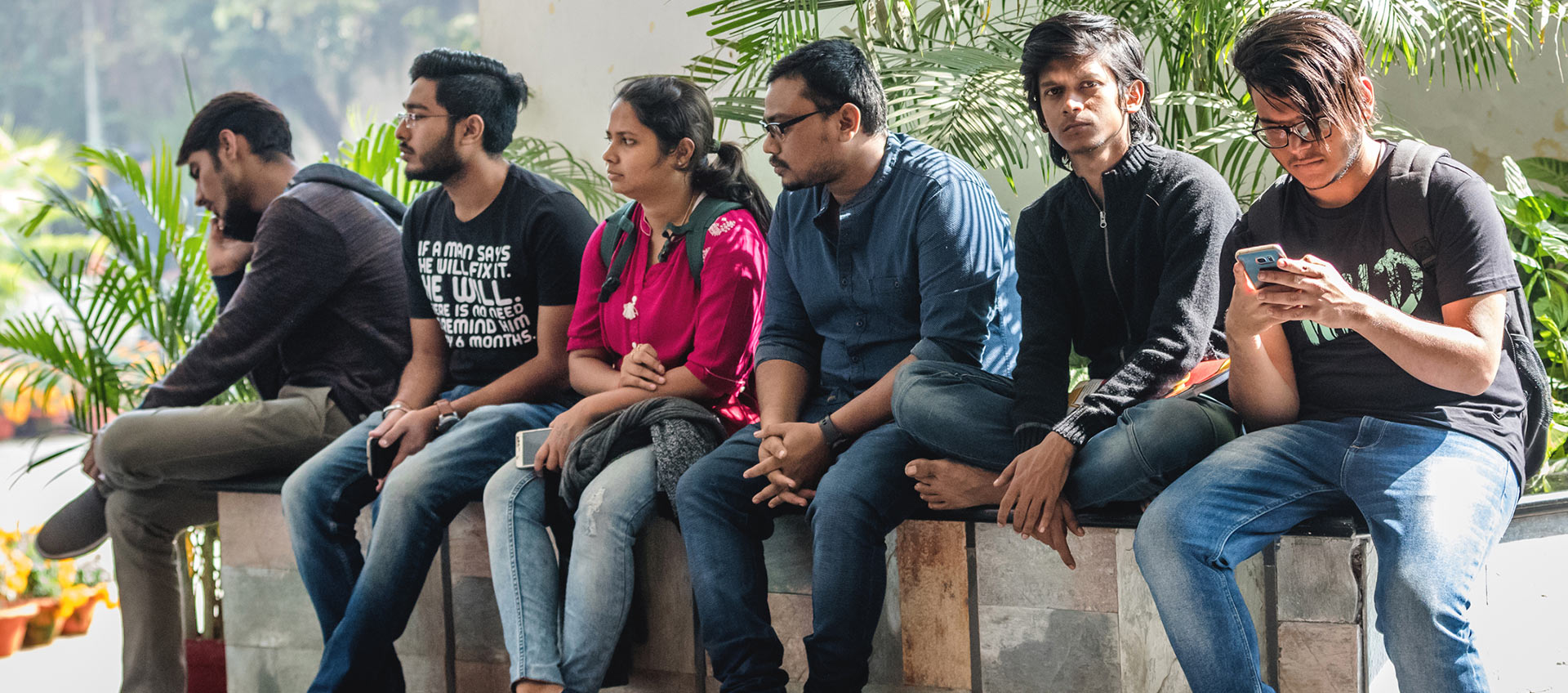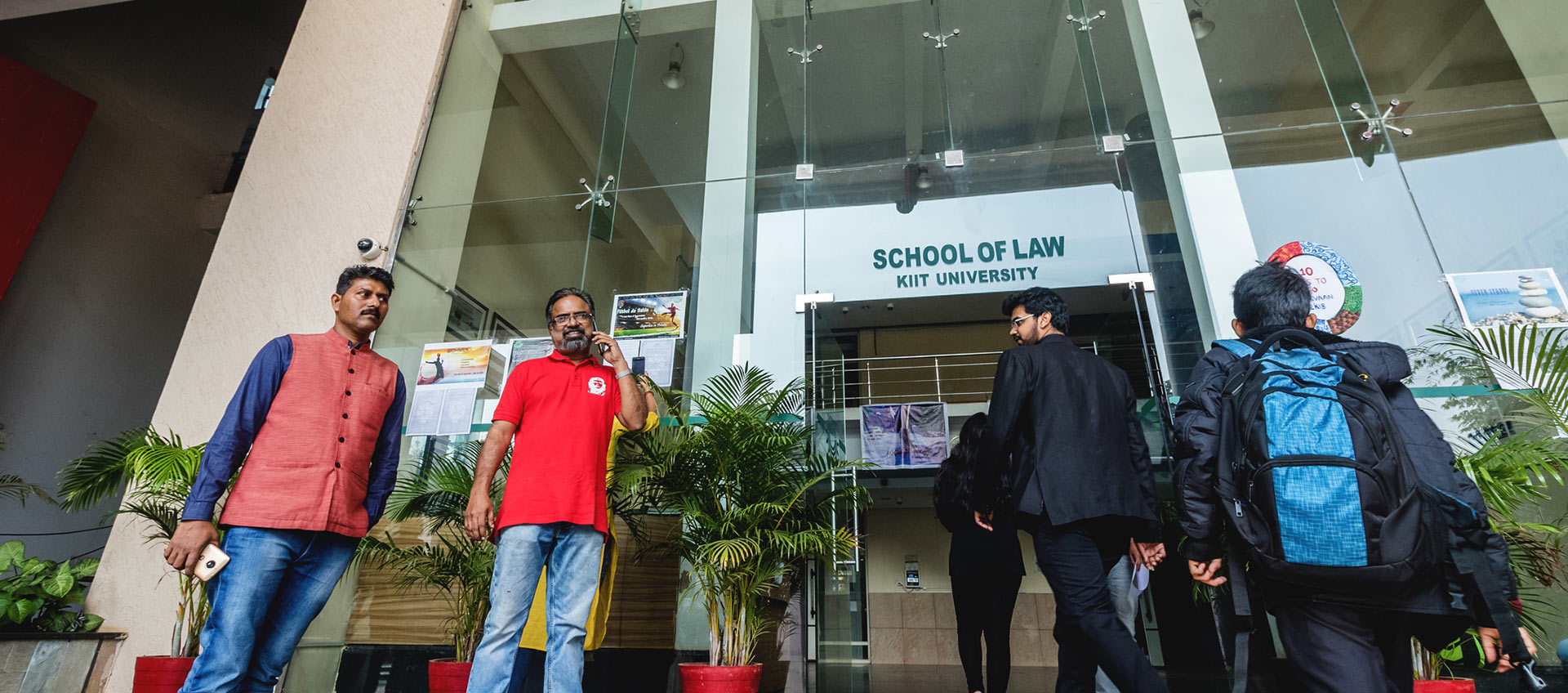About the Programme
Our LL.M Post Graduate Programme offers a comprehensive and rigorous curriculum tailored to develop advanced legal knowledge and practical skills. Combining theoretical foundations with experiential learning, the program equips students to navigate complex legal challenges across diverse fields. Engage in dynamic discussions, explore contemporary legal issues, and sharpen your research abilities. Join a vibrant academic community that supports your professional growth and prepares you for leadership in the legal world.
Program Highlights
KSOL offers the above areas of specialization. However the number of optional / specialization courses in any academic year to be offered will depend upon the number of students selected in respective areas of specialization

Learn from the Best
Learn from the best in the field through our LL.M Post Graduate Programme. Our distinguished faculty includes leading legal scholars, seasoned practitioners, and thought leaders who bring invaluable real-world insights to the classroom. With engaging lectures, research opportunities, and mentorship, students benefit from a holistic learning experience that extends beyond theory. Our faculty’s commitment to excellence ensures that students are equipped with the knowledge, skills, and ethical grounding to excel in diverse legal careers.

Real-world Focus
Our LL.M Post Graduate Programme places a strong emphasis on real-world application. We foster an environment where theoretical knowledge is seamlessly integrated with real-world experience. Students learn to navigate complex legal frameworks, advocate for clients, and contribute to policy development. This approach ensures that graduates are ready to meet the demands of an evolving legal landscape with confidence and expertise.

Career Opportunities
Graduates of the LL.M Post Graduate Programme are well-positioned for diverse and rewarding careers in law and beyond. They can pursue roles as legal advisors, policy analysts, corporate counsel, or litigation specialists in top-tier law firms, multinational corporations, and government agencies. Opportunities also exist in international organisations, academia, and non-governmental organisations. The LL.M provides a solid foundation for those aiming to specialise further or embark on a career in legal research and development. With a global perspective and a focus on advanced legal principles, our graduates are equipped to make meaningful contributions to the legal profession and society.
1. To develop integrated legal education & offer three conjoined honors degree courses (B.A.LL.B., B.B.A.LL.B, and B.Sc. LL.B, LL.M ).
2. To produce Law graduates with core values of high professional skill, integrity and competence with the following-
- Proficient in legal skills
- Critical analysis
- Reasoning
- Problem solving
- Constructing a legal perspective
- Effectively communicating within a legal concept
- Emphasizing intellectual and jurisprudential exercise of law in Social Context.
3. To explore possibilities of new areas of specialization in both undergraduate as well as post-graduate level.
Name of the Program: LL.M
The Post graduate students after completion of LLM program shall be able to:
PO.1. Critical Thinking: Take informed actions after identifying the assumptions that frame our thinking and actions, checking out the degree to which these assumptions are accurate and valid, and looking at our ideas and decisions (intellectual, organizational, and personal) from different perspectives to understand and offer solution within the realm of law.
PO.2. Effective Communication: Speak, read, write and listen clearly and use the nuances of legal communication in person and through electronic media in English and in one Indian language where the legal profession will be practiced, and make meaning of the world by connecting people, ideas, books, media and technology.
PO.3. Social Interaction: Elicit views of others, mediate disagreements and help reach conclusions in group settings and make use of rule of law to the best possible way.
PO.4. Effective Citizenship: Demonstrate empathetic social concern and equity centred national development, and the ability to act with an informed awareness of issues and participate in civic life through volunteering.
PO.5. Ethics: Recognize different value systems including your own, understand the moral dimensions of your decisions.
PO.6. Environment and Sustainability: Understand the issues of environmental contexts and sustainable development for the betterment of people served to the legal profession and the state or society as a whole.
PO.7. Self-directed and Life-long Learning: Acquire the ability to engage in independent and life-long learning in the broadest context socio-legal changes.
PSO.1. Understand in depth the concepts of Law and its application in research and teaching.
PSO.2. Critically analyse legal theories in difference fields of law and inculcate enhancement of knowledge through research and writing.
PSO.3. Acquire the skill of identifying contentious issues in socio-political and legal perspective for devising ways to counter the gaps between law and its implementation in various avenues of human interaction.
PSO.4. Empower to apply the theoretical knowledge of law ethically in all spheres of governance, regulation and dispute resolution.













